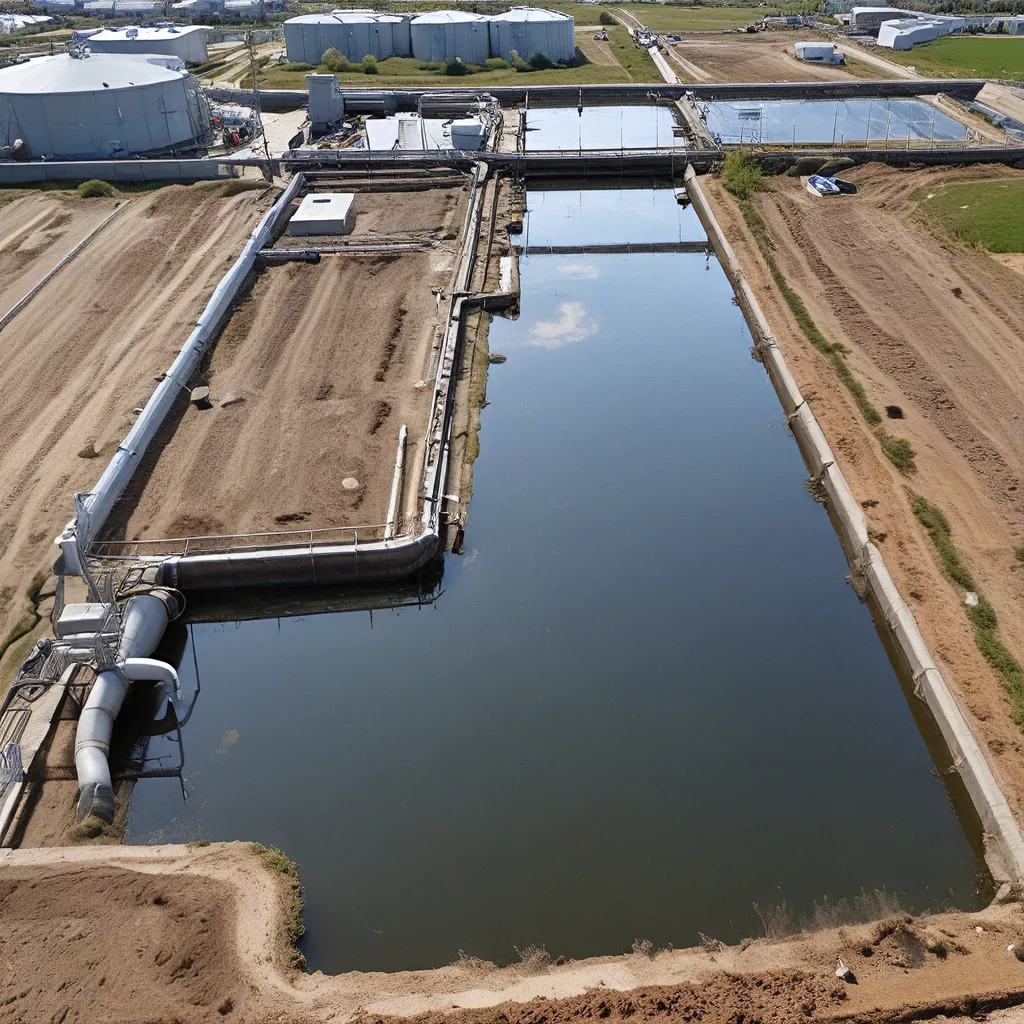
As an individual deeply passionate about sustainable urban living, I’ve always been fascinated by the intricate interconnections between the food, energy, and water systems that power our cities. And when it comes to exploring these complex relationships, one area that has captured my attention is the role of wastewater treatment in this delicate balance.
Uncovering the Food-Energy-Water Nexus
The urban food-energy-water (FEW) nexus is a concept that has gained significant traction in recent years, as researchers and policymakers alike have come to recognize the critical interdependencies between these essential components of modern city life. At the heart of this nexus lies the management of wastewater – a resource that is often overlooked, but one that has the potential to profoundly impact the way we approach urban sustainability.
Studies have shown that the reuse of treated wastewater can play a pivotal role in addressing the challenges within the FEW nexus. By reclaiming and repurposing this valuable resource, we can not only reduce the strain on freshwater supplies, but also unlock new opportunities for sustainable urban agriculture and renewable energy production.
Wastewater Treatment: A Multifaceted Solution
When it comes to wastewater treatment, the traditional approach has often been focused solely on the removal of contaminants and the safe disposal of the resulting effluent. However, as our understanding of the FEW nexus has deepened, the potential of wastewater treatment to serve as a multifaceted solution has become increasingly apparent.
Emerging research suggests that by integrating wastewater treatment into a comprehensive urban sustainability framework, we can unlock a wealth of benefits. This includes the production of renewable energy through the capture and conversion of methane gas generated during the treatment process, as well as the use of treated wastewater for irrigation in urban agriculture.
Renewable Energy from Wastewater
One of the most exciting developments in the intersection of wastewater treatment and the FEW nexus is the potential for renewable energy production. By harnessing the methane gas generated during the anaerobic digestion of organic matter in wastewater, treatment facilities can reduce their reliance on traditional energy sources and contribute to the circular economy.
This approach not only helps to offset the energy demands of the treatment process itself, but it also has the potential to provide a sustainable source of electricity for nearby communities. In fact, some advanced wastewater treatment plants have already begun to explore this cogeneration model, where the biogas produced is used to power on-site turbines or fuel cells, generating clean energy for the grid.
Wastewater Reuse for Urban Agriculture
Another key aspect of the FEW nexus is the potential for treated wastewater to be used for urban agriculture. In regions facing water scarcity, the reuse of reclaimed water for irrigation can be a game-changer, helping to reduce the strain on limited freshwater resources while also supporting the production of local, sustainable food.
Studies conducted in Hyderabad, India have highlighted the benefits of this approach, demonstrating how the strategic integration of wastewater treatment and urban farming can lead to improved food security, reduced energy consumption, and enhanced water conservation.
Navigating the Challenges
Of course, the path towards fully integrating wastewater treatment into the urban FEW nexus is not without its challenges. Issues such as public perception, regulatory frameworks, and technological limitations can all pose significant hurdles to overcome.
Public Perception and Acceptance
One of the key obstacles in this journey is the public perception of wastewater reuse. Many people may be hesitant or even resistant to the idea of using treated wastewater for agricultural or even household purposes, due to concerns about health and safety. Addressing these concerns through comprehensive public education and transparent communication will be crucial to driving wider acceptance and adoption.
Regulatory Frameworks and Policy Alignment
Another crucial factor is the alignment of regulatory frameworks with the goals of the FEW nexus. In many cases, existing policies and regulations may not adequately account for the potential of wastewater treatment to contribute to urban sustainability, making it difficult to implement innovative solutions at scale.
Policymakers and regulatory bodies will need to work closely with researchers, practitioners, and community stakeholders to develop a more holistic and adaptive framework that enables the seamless integration of wastewater treatment into the broader urban sustainability landscape.
Technological Limitations and Innovations
Finally, the technological limitations inherent in current wastewater treatment processes can also pose significant challenges. Issues such as energy efficiency, water quality standards, and scalability will need to be addressed through continued research and development.
However, the rapid pace of technological innovation in this field is cause for optimism. From advanced membrane filtration to bioelectrochemical systems, there are numerous promising avenues being explored to enhance the performance, cost-effectiveness, and environmental impact of wastewater treatment.
The Path Forward: A Sustainable Urban Future
As I reflect on the intricacies of the urban FEW nexus and the role of wastewater treatment, I can’t help but feel a sense of excitement and optimism about the transformative potential of this field. By harnessing the power of renewable energy, urban agriculture, and water conservation, we have the opportunity to redefine the way our cities function and pave the way towards a more sustainable and resilient future.
Of course, the journey ahead will not be without its challenges, but I believe that with collaborative efforts, innovative thinking, and a steadfast commitment to sustainability, we can overcome these obstacles and unlock the full potential of wastewater treatment to address the pressing issues within the FEW nexus.
As an individual, I am committed to supporting and advocating for these sustainable solutions, and I encourage you to explore the wealth of resources and opportunities available through organizations like Alpha Wastewater. Together, we can embark on a transformative path that not only enhances the environmental and economic well-being of our cities, but also inspires a new generation of urban sustainability champions.